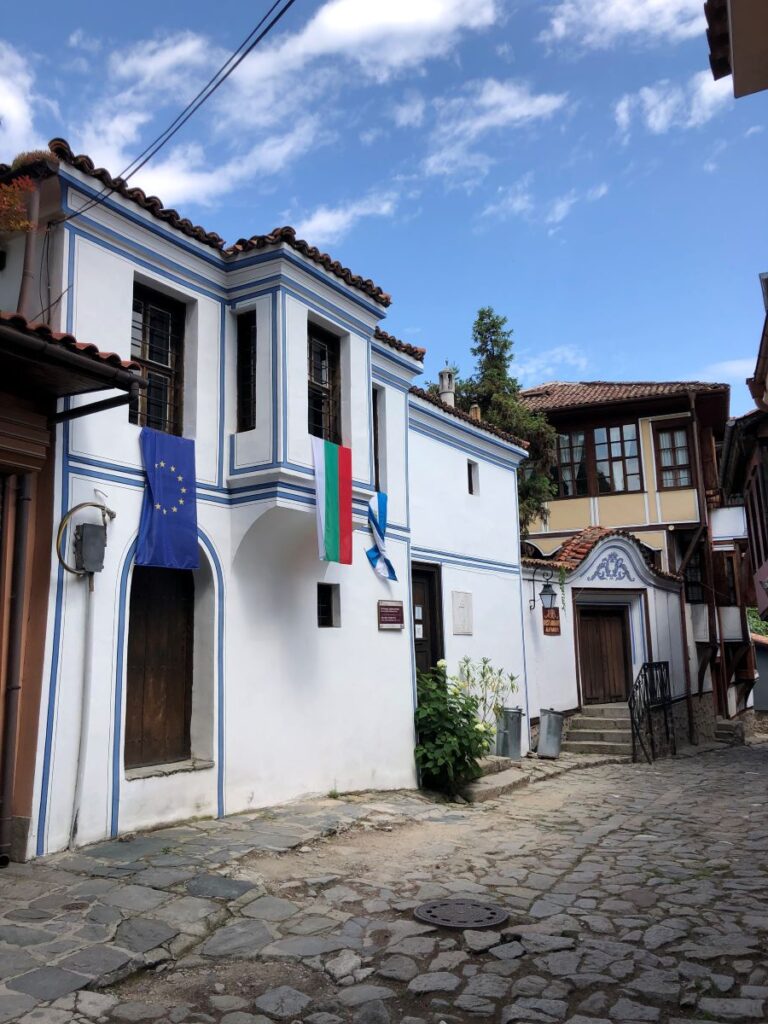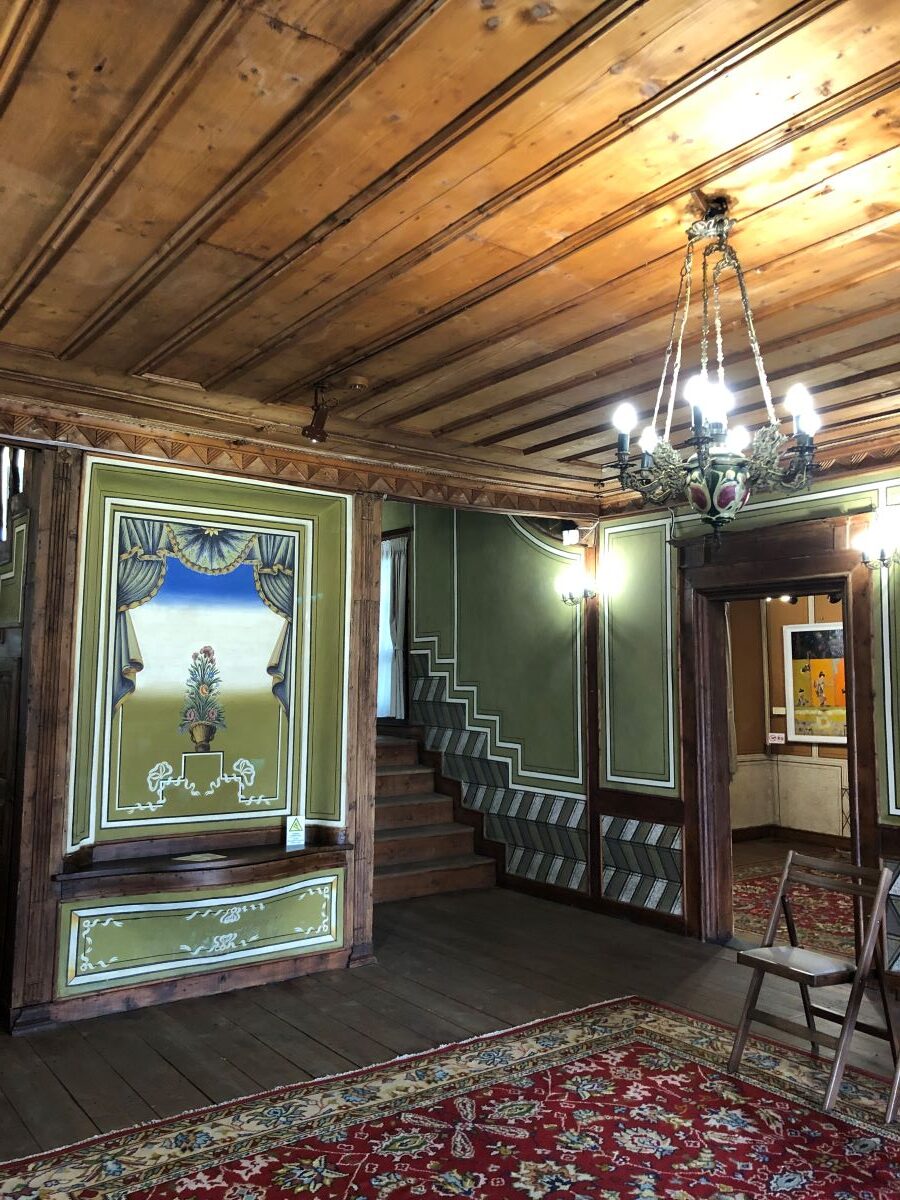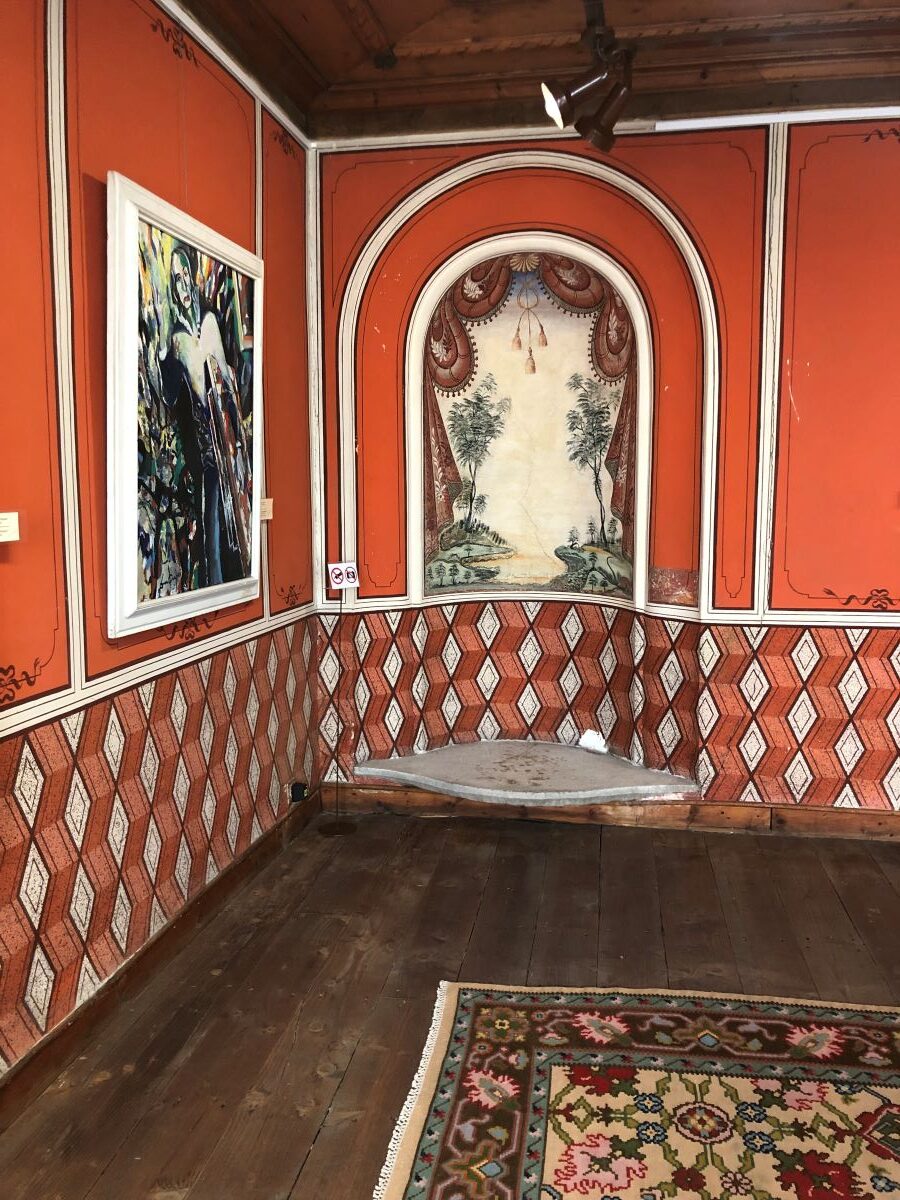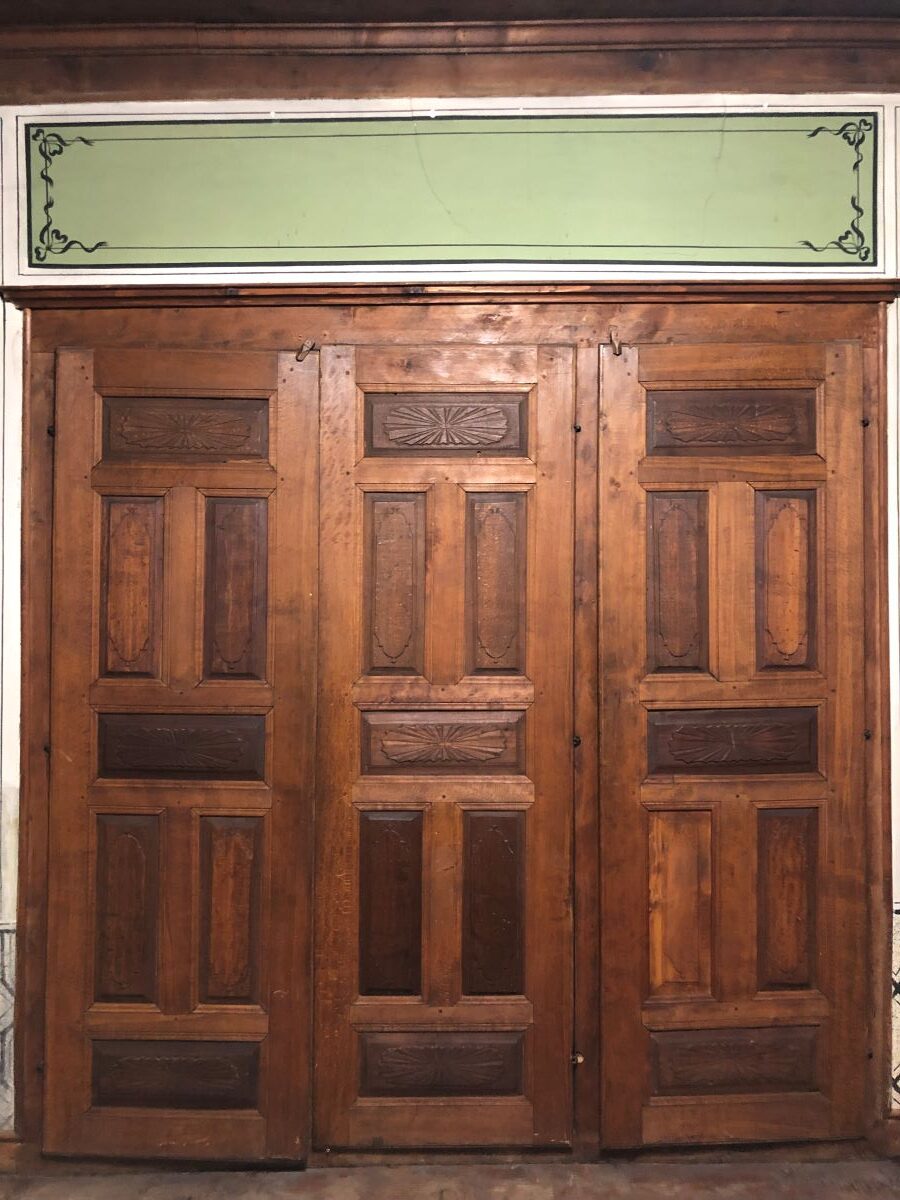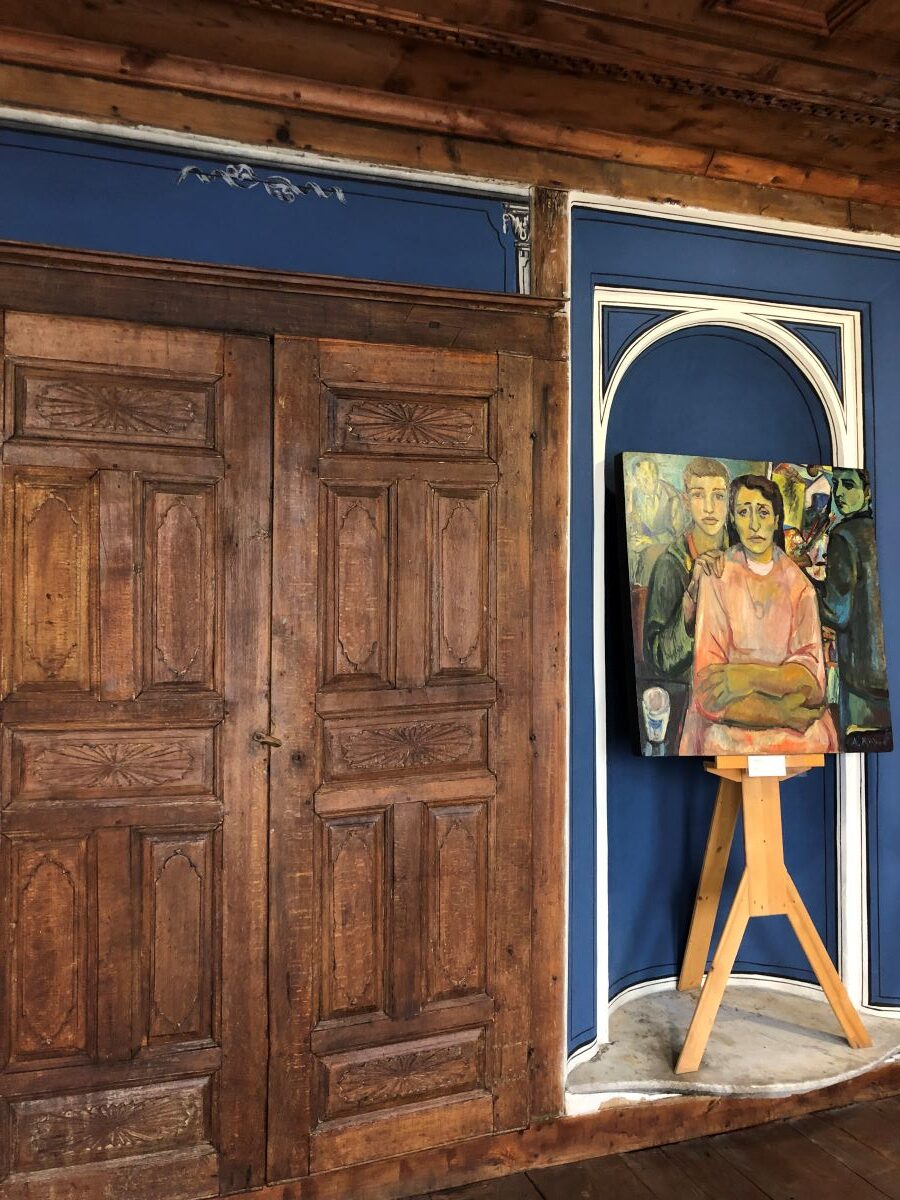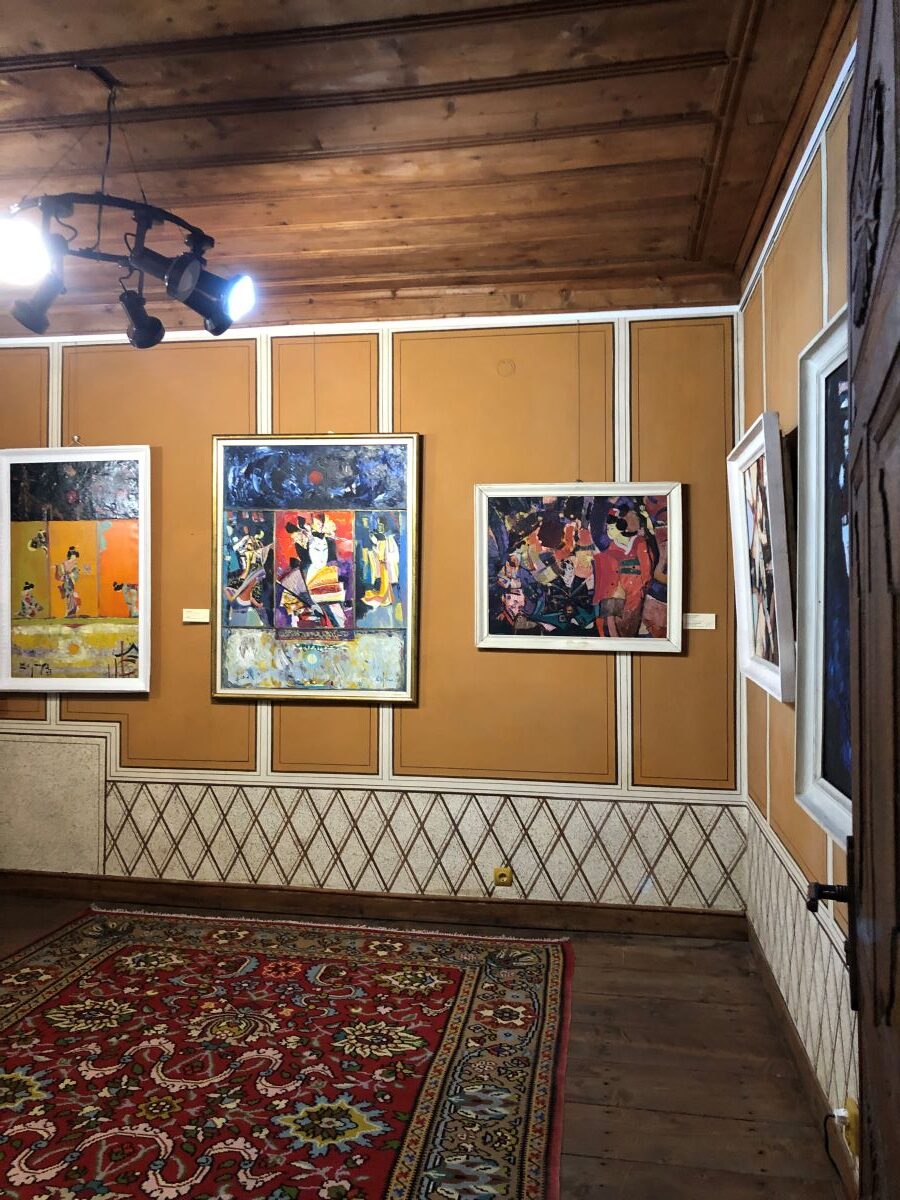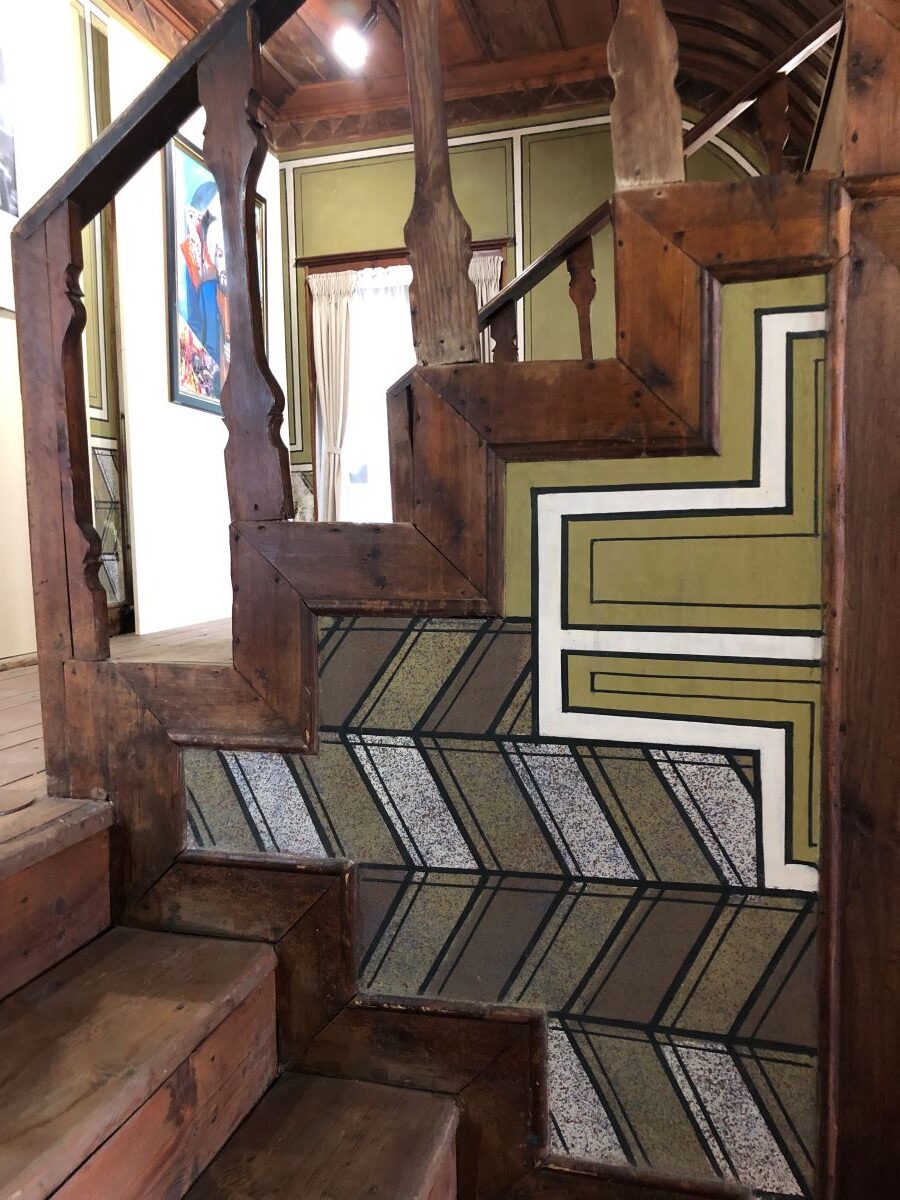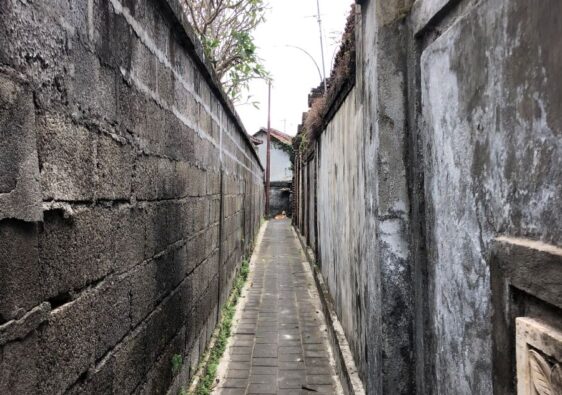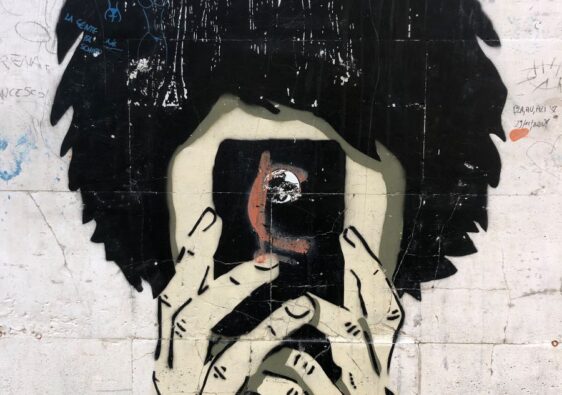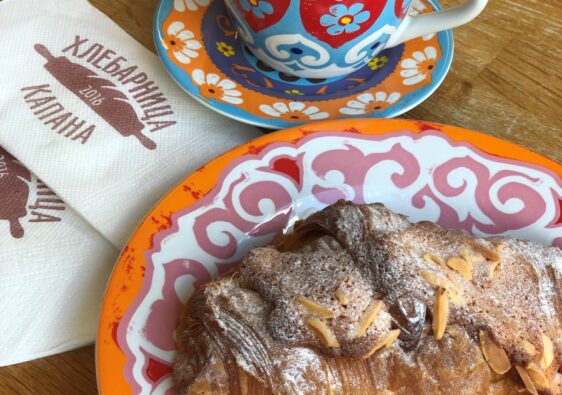One of the houses I was determined to explore in Plovdiv was the gorgeous Stambolyan House in Old Town. It doesn’t look like it would be that amazing from the exterior. All one can see from the street is a tall white stone and plaster wall and small building surrounding a wooden doorway. But step inside that door, and wow, the sight is indeed incredible.
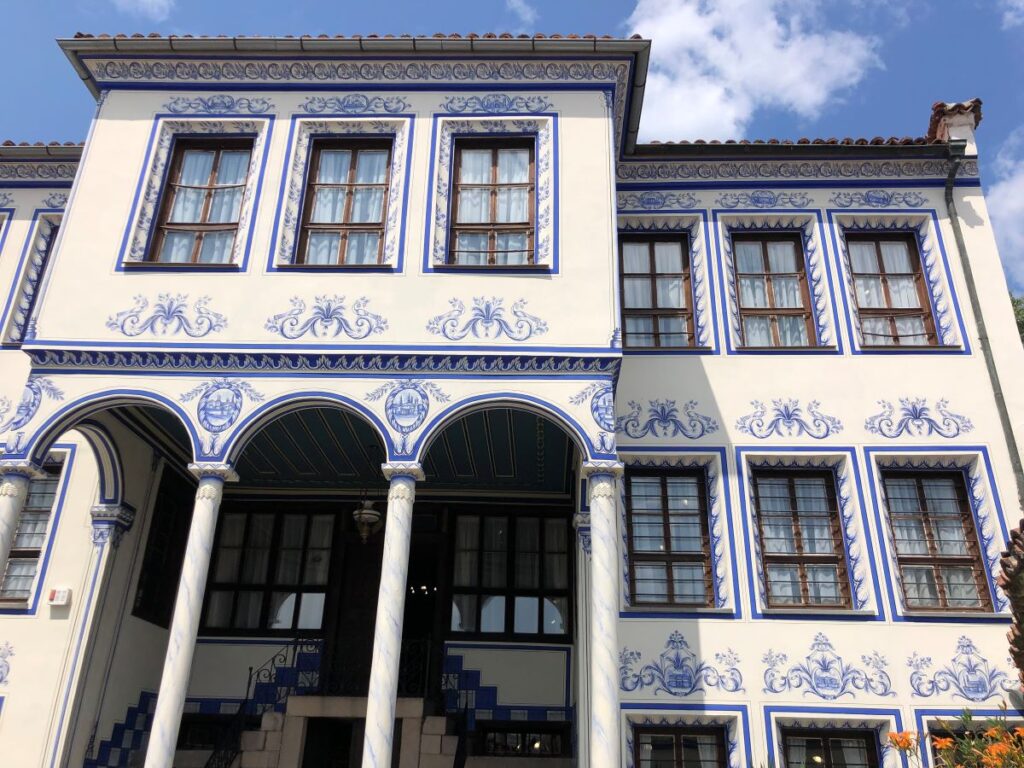
Stambolyan Exterior
Built during the Bulgarian Revival Period in the second half of the 19th century, this house is one of the larger ones I visited. It is built upon the south eastern slope of Djambaz Tepe, one of Plovdiv’s six hills.
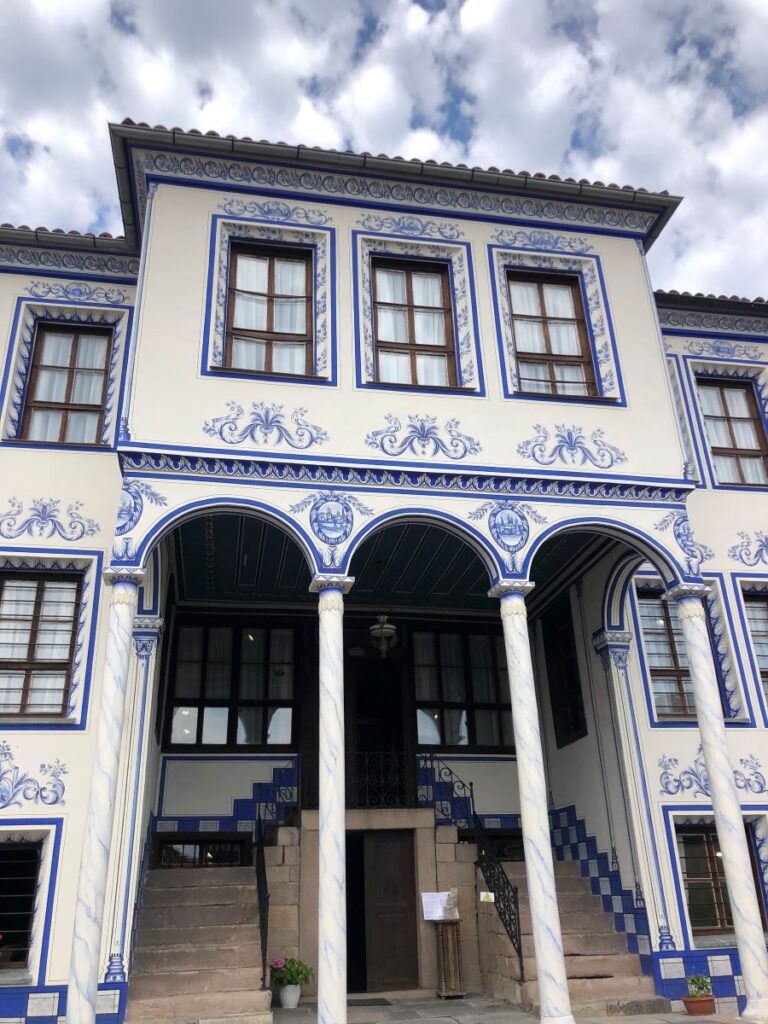
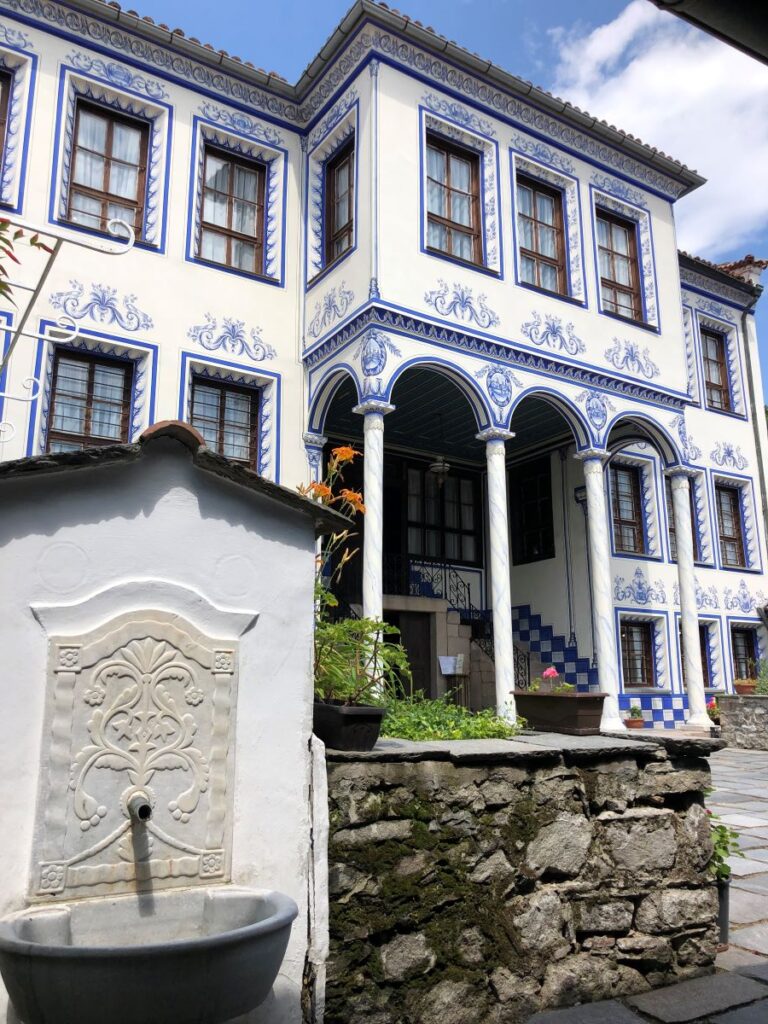
Stambolyan will greet you with a massive set of painted columns upon entering the courtyard from the street. The house is so large, my camera was unable to take in the entire building in a single shot.
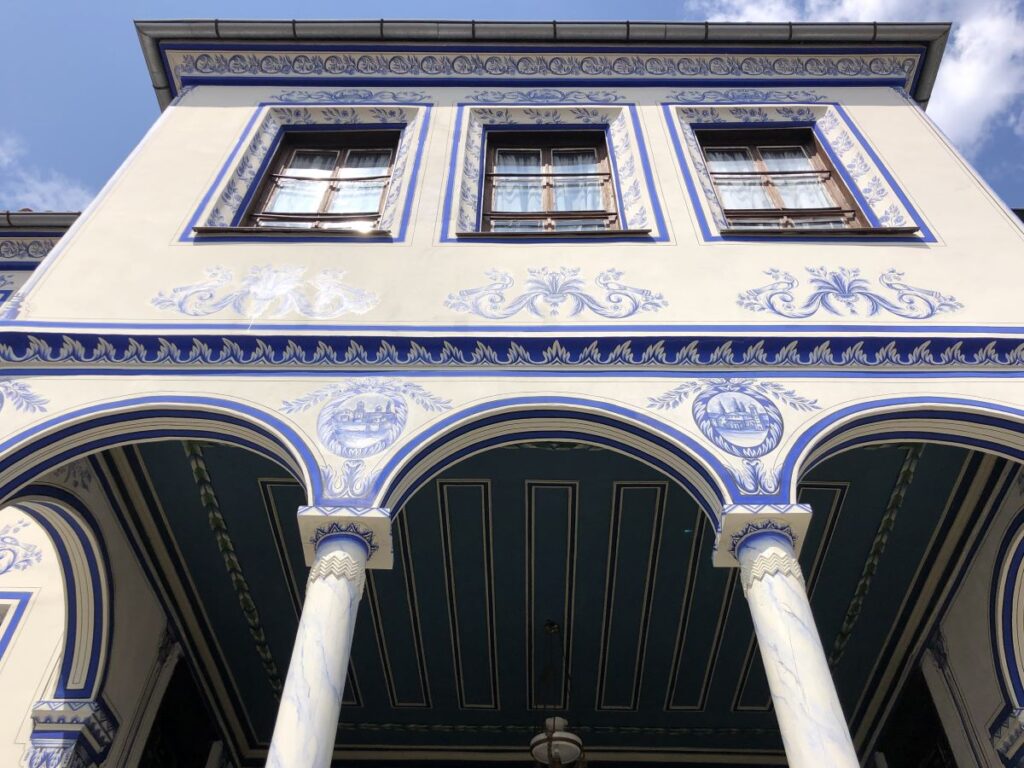
I love the classic blue and white colour combination. I find this repeated a lot through history, from Asia to the delft pottery in Holland. This combination is a favourite of mine, so I was immediately drawn in by this home.
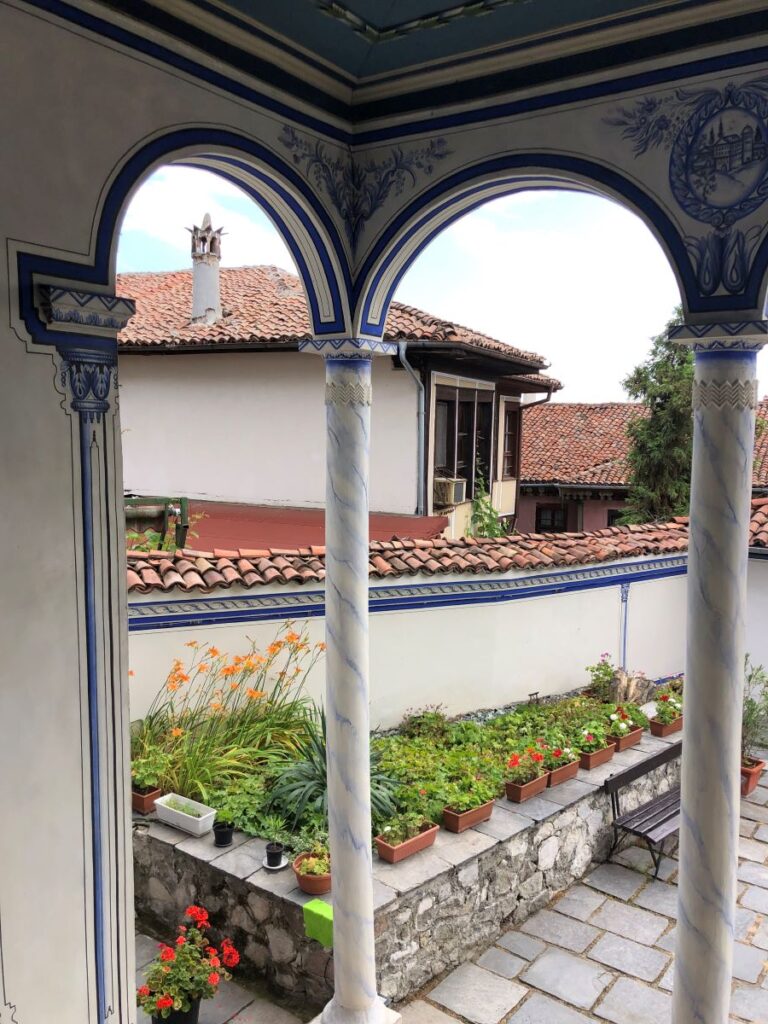
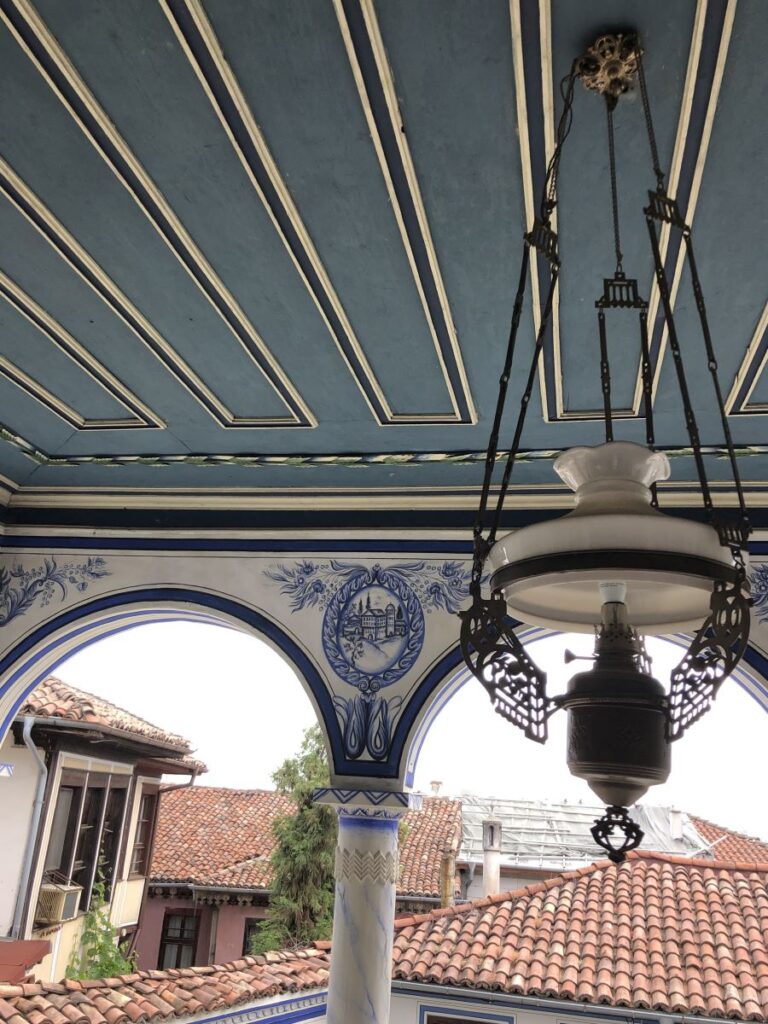
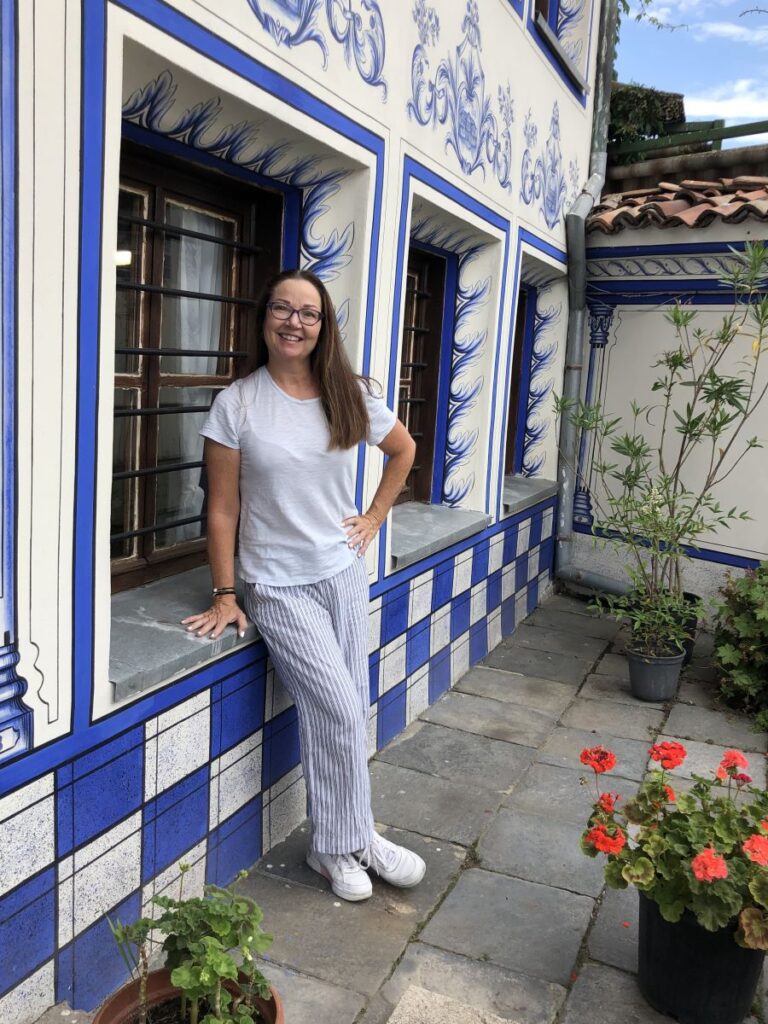
The courtyard is rather small but, in its day, would have been a lively space. Currently there are planters of bright red geraniums and vivid orange poppies scattered over the terrace.
Stambolyan Interior
Of all the houses I have visited, this one had the most exposed wood, meaning unpainted. Currently this house is used as a gallery for the work of Dimitar Kirov who lived here in the 1960’s. I’ll write another post again about him and his gorgeous art.
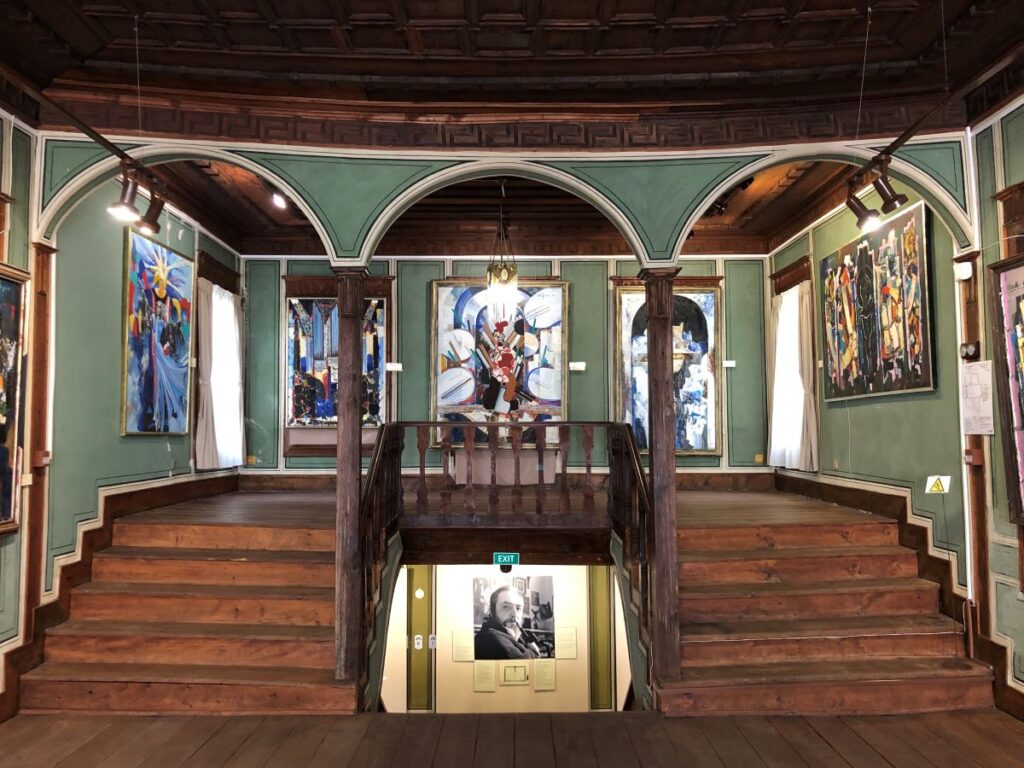
Basement
The basement has a stone floor and a huge raw wooden ceiling. There are several rooms off to each side of the main entry way.
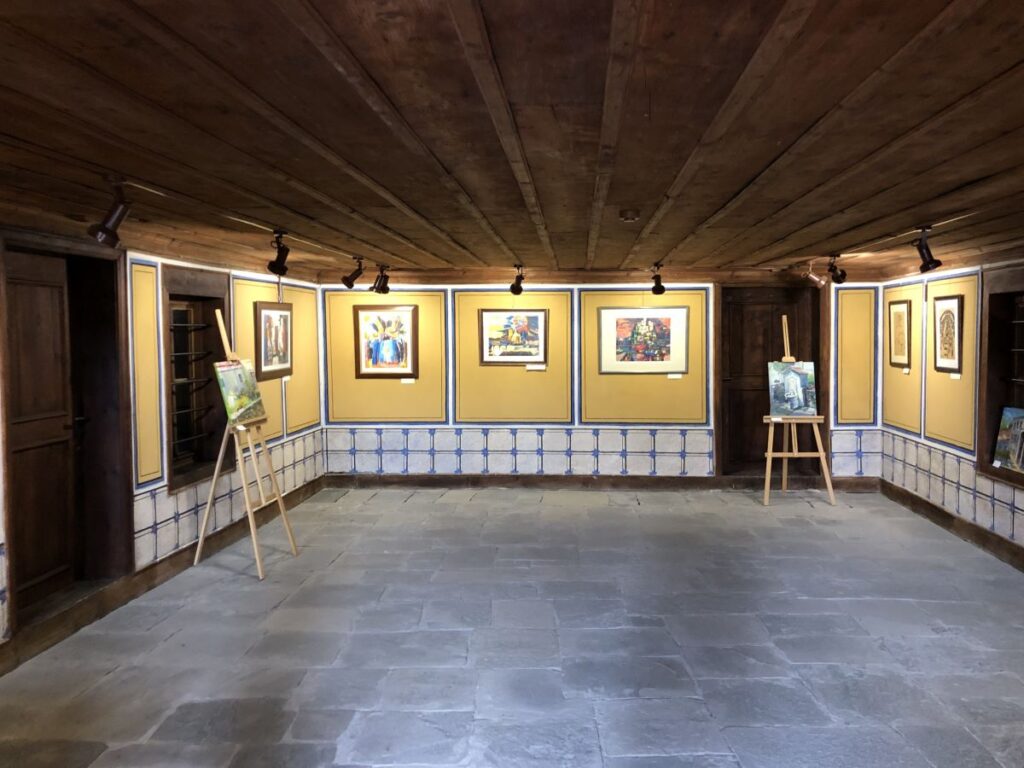
Main Floor
The main floor also consists of a huge parlour room in the centre, with several smaller rooms on each side. At the rear of this floor is a staircase that takes one up to the top floor.
Upper Floor
Wow, climbing that staircase and entering this upper floor, grand room, is breathtaking. From the carpet, to the stunning ceiling, and everything in between.
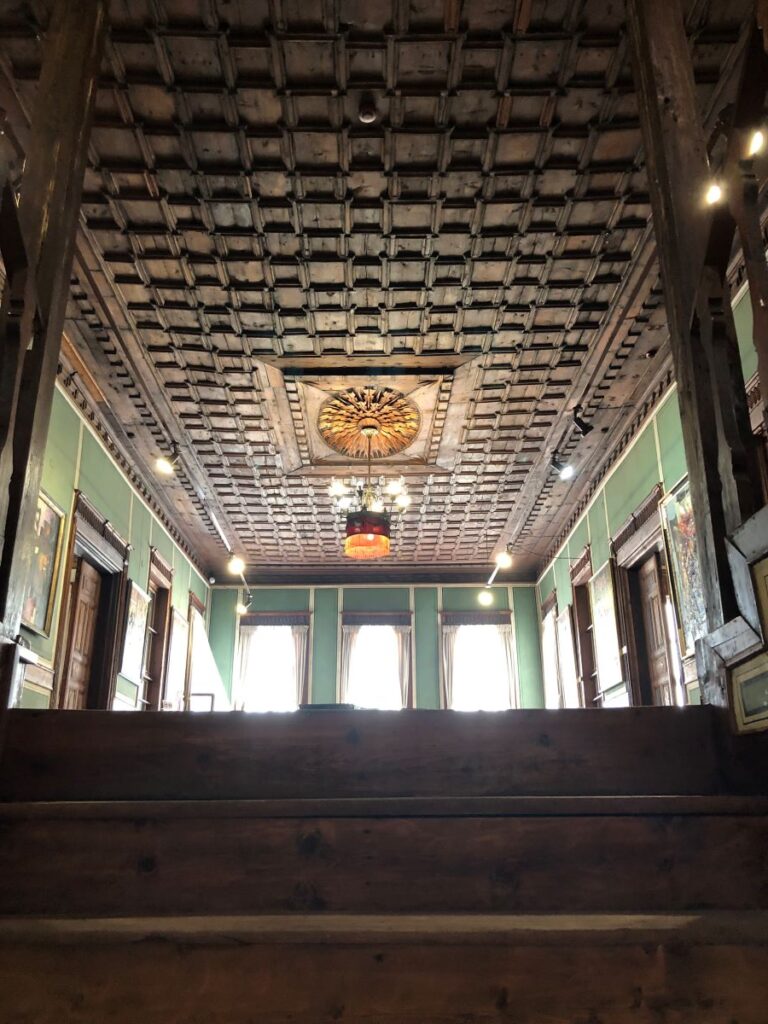
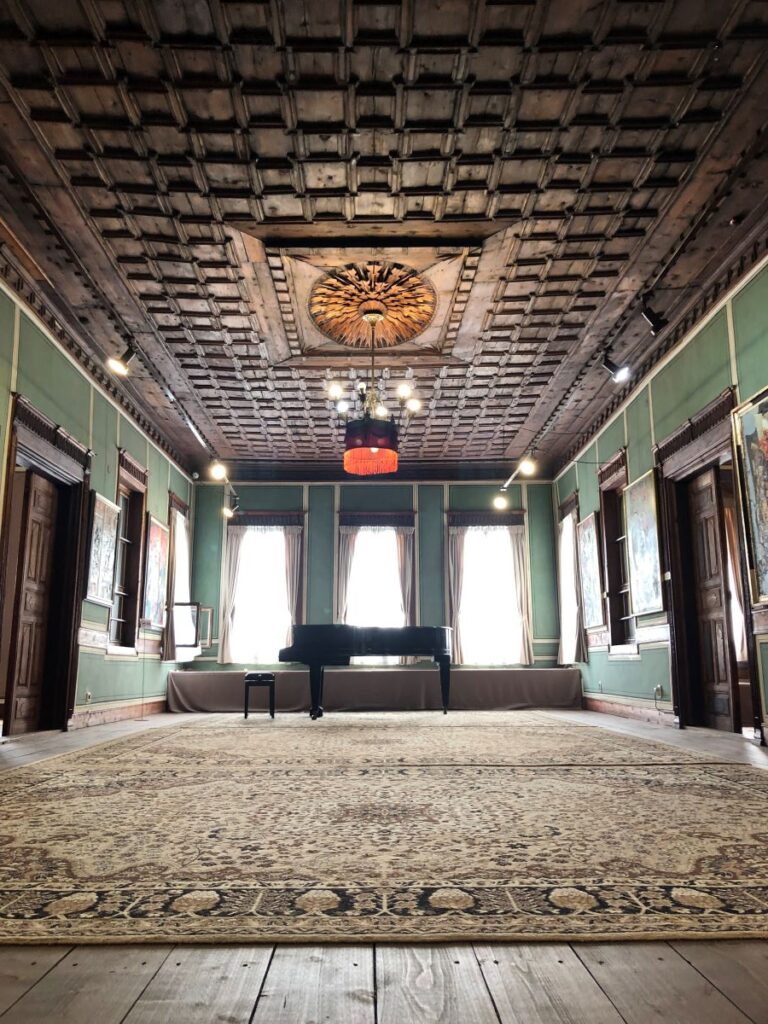
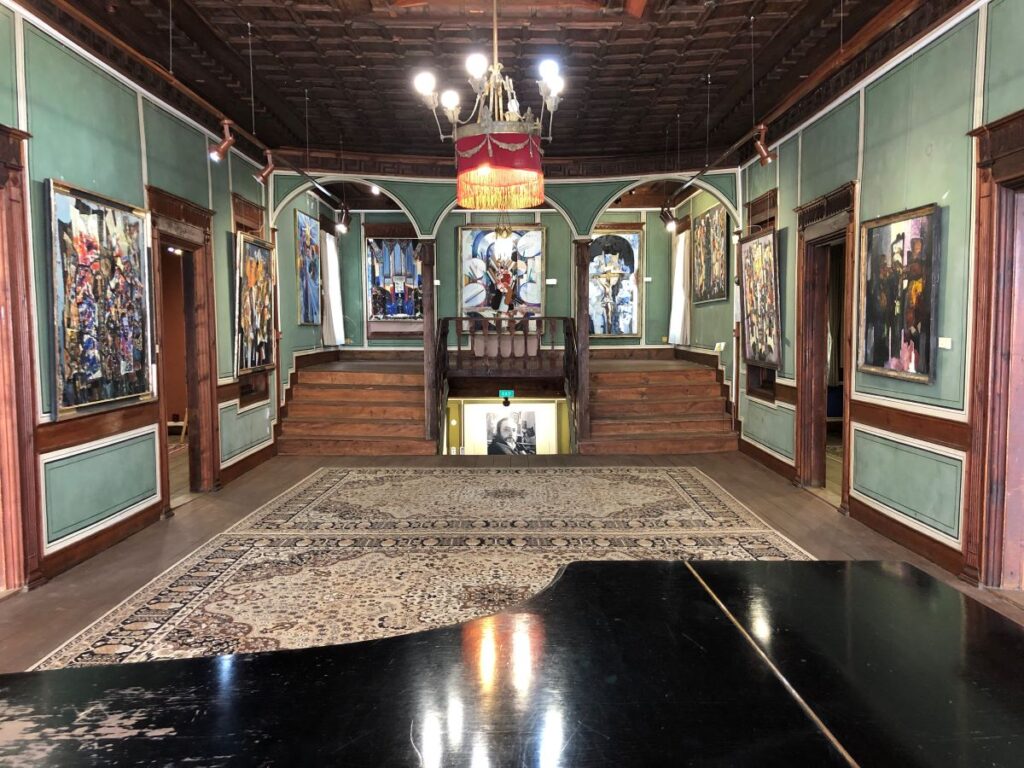
I was loving the graphic painting that adorns the lower half of the walls in the rooms of this house. Painted in 1960’s and 70’s colours, it perfectly compliments the art work of Dimitar.
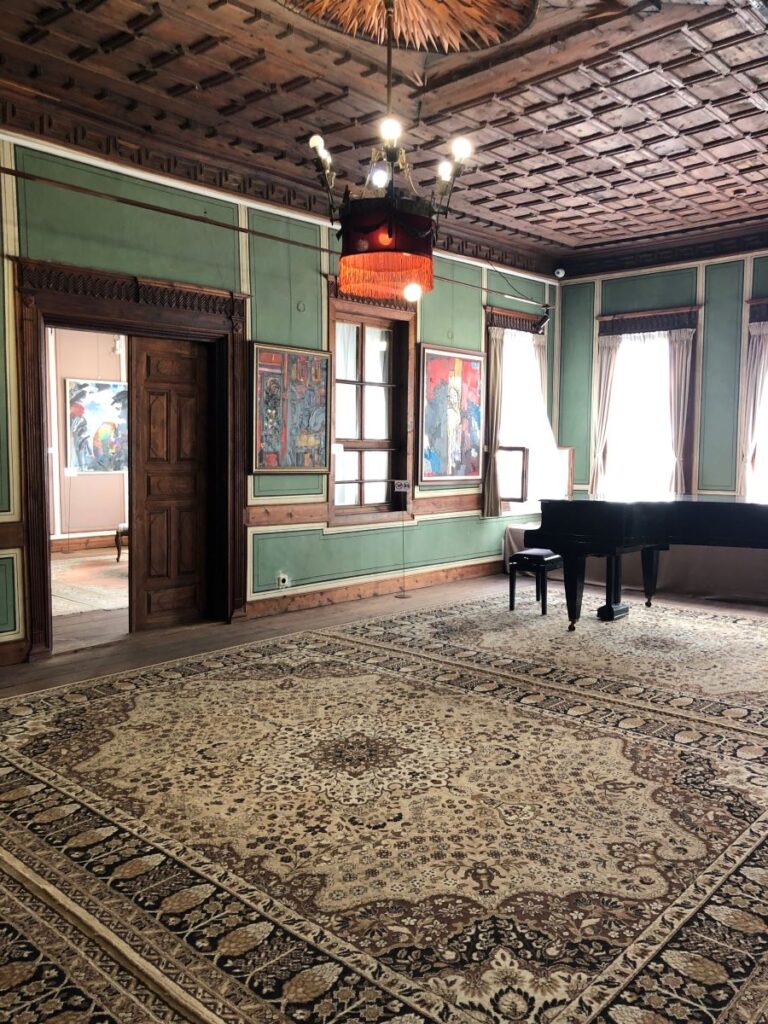
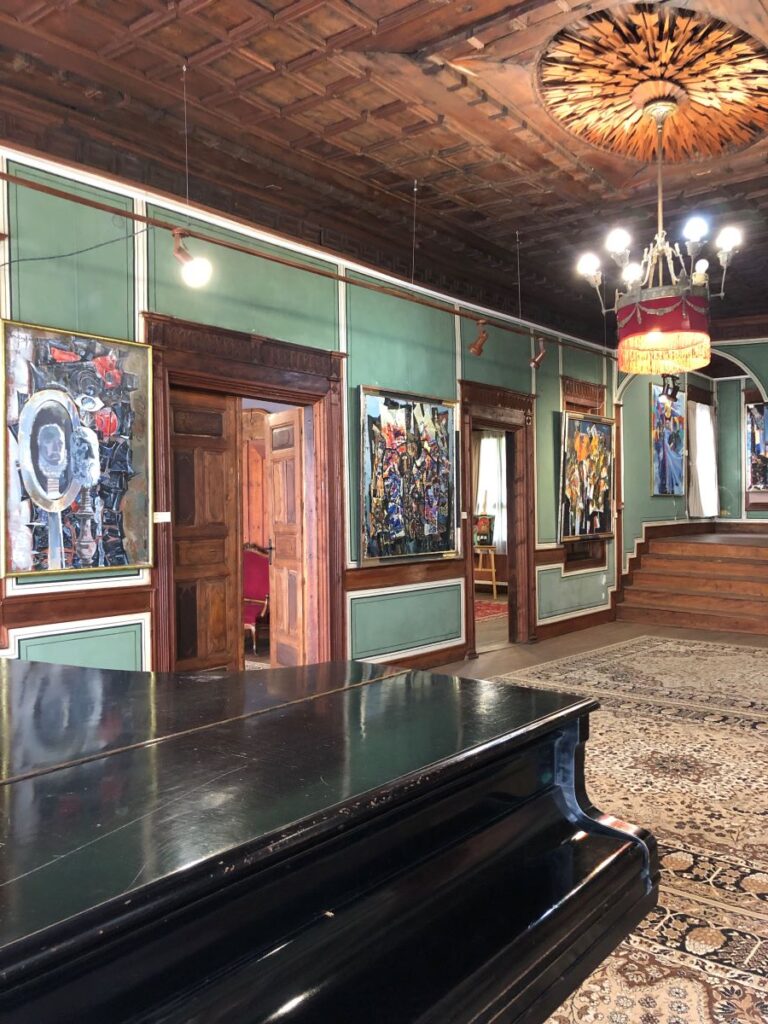
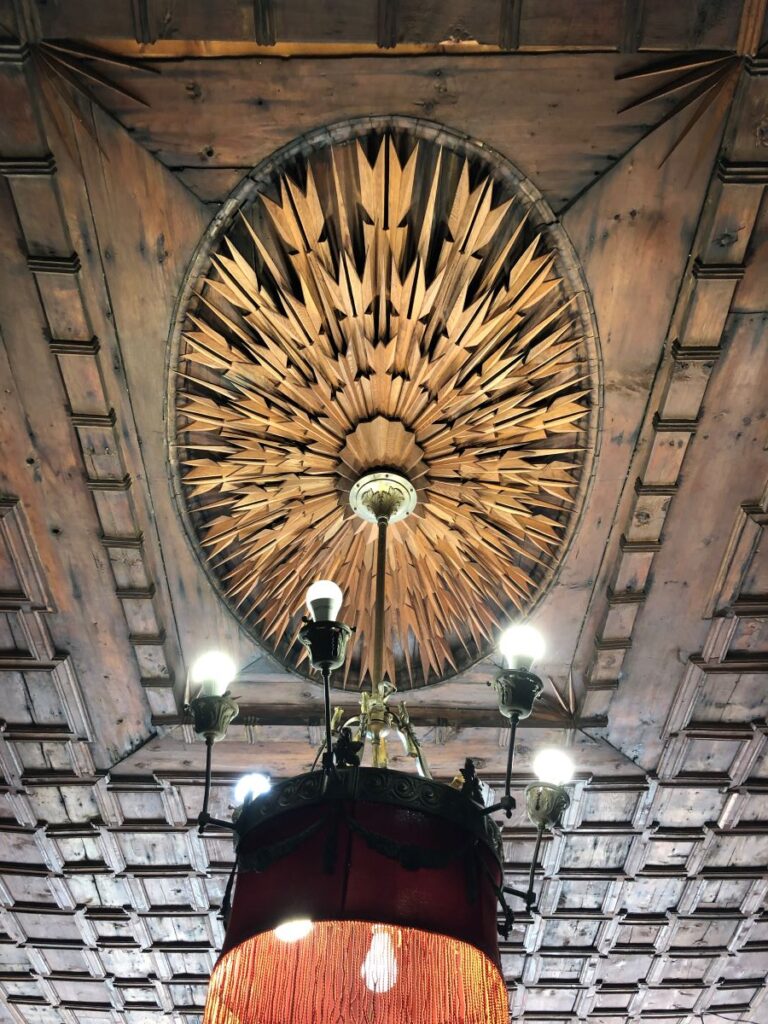
Comparing this house to Klianti for example is I feel, like comparing applies to oranges. Klianti is much smaller, and so extravagantly and ornately decorated, it is overwhelming for me. I felt much more at ease in Stambolyan House. I felt I had space to breath and take in all of the truly incredible woodwork and artwork that was surrounding me.
